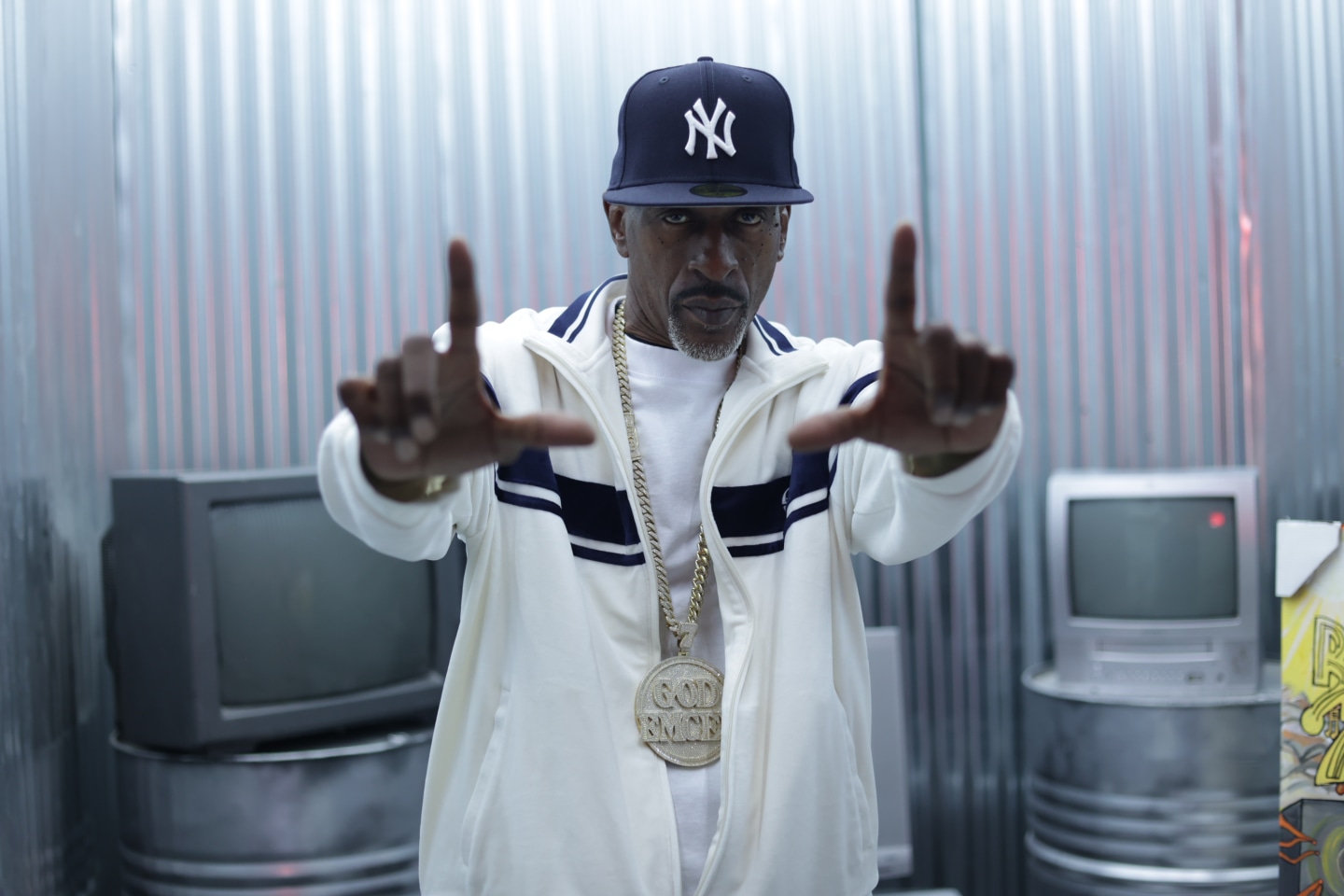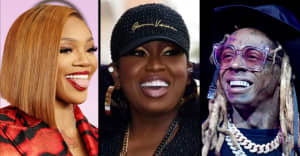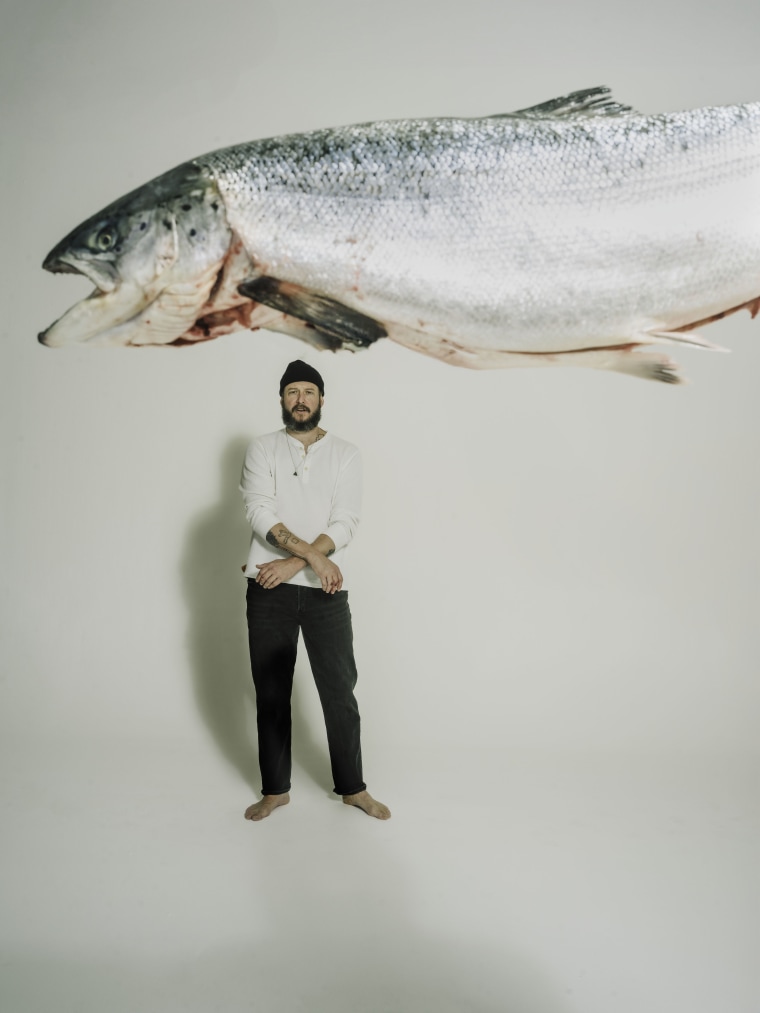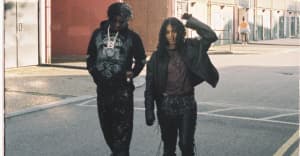Rakim. Image via Keith Hutter.
ScHoolboy Q’s face, usually youthful and serene, was suddenly lined with irritation. The L.A. rapper was a guest on Lil Yachty’s podcast A Safe Place back in March, sharing light-hearted conversations about T.D.E. groupies and getting robbed. But things turned when Yachty brought up a topic that hit close to home for the 37-year-old Q: rap fans’ dismissal of the music’s elders (or, in Q’s case, rap’s elder-adjacent). “They don’t respect us, cuh,” he groaned when Yachty’s co-host Mitch brought up fans downplaying Lil Wayne’s talents. “In what world could you be disrespecting Lil Wayne in 2024?” The problem, the three concluded, may lie in the crab-in-the-bucket culture of rap itself. “Ain’t no Morgan Wallen fans under Tim Graw’s pictures like ‘You old fuck, you old out-of-date bitch,” Yachty snickered, completing a 180-degree turn from the defiance he exhibited just a few short years ago.
The only way for legends to avoid being talked down by the kids, it seems, is to be a rapper’s rapper – someone whose talents have never matched their commercial success, but has secured their place in the hip-hop pantheon. Rakim is perhaps the ultimate example, an artist who has truly earned the “God MC” title emblazoned on his chain. Hip-hop was a different kind of music before he dropped Paid In Full, a collaboration with Eric B from 1987 that’s now widely regarded as one of the best albums in history. Rakim brought language and delivery out from under the seemingly endless shadow of the hopscotch-y Sugarhill Gang and made it something that could be tougher, more dexterous – an art in itself inspired by his years playing saxophone and listening to John Coltrane. When Paid In Full came out it was still an open question whether or not hip-hop was just a trend. More than perhaps any other single artist, Rakim inspired a generation of artists to make it into not just a culture but the culture.
Paid In Full eventually went platinum, and Rakim accrued four gold records in the four decades since for albums released both solo and with Eric B. Other Top 5-level rappers like Wayne have more of a market for their particular type of genius; Rakim is a proudly conscious rapper, someone who agonizes over the symbology and effects of his words to the point where near-decades will go between albums; G.O.Ds Network: Reb7rth, released last week, is his first since 2009’s The Seventh Seal. Legal and label problems (and, more recently, a struggle with long COVID) have stymied Rakim throughout his career, but it’s been clear since the early ‘90s that his path to greatness would not run through Billboard chart ubiquity.
G.O.Ds Network: Reb7rth offers a lesson in aging with grace, power, and purpose. The word “Network” refers to the roster of fellow veterans Rakim has assembled: Prodigy, Kurupt, Method Man, Masta Killa, KXNG Crooked, 38 Spesh, B.G., Hus Kingpin, the late Nipsey Hussle, Kool G Rap, and many more are packed into the project’s nine tracks (DMX and Snoop Dogg show up as well, serving more as grace notes than features). But it is both wholly a Rakim album — he produces and lays record scratching on every track — and an unspoken love letter to a certain ideal of rap.
Modern “old head” rap albums can sound adversarial to a new generation, its rhymes smelling like the heels of Unc Sandals, old Black & Milds, and bitterness. But G.O.Ds Network doesn’t spend time berating the new school, opting instead for a “show, don’t tell” philosophy. For Rakim, it’s about elegant assonance linking his bars together like double-knotted Timberland laces and spitting a raw and undidactic strain of knowledge. But most of all, it’s about unity, bringing together O.Gs from all corners of the United States; the science classes may have different modules, but they’re all still science lessons. All of this craftsmanship makes the decision to use A.I-assisted tools in the creation of the “Love Is The Message” video that much more confusing. It’s a halting, painful watch, cobbled together from the dregs of Dall-E or some similar program, undermining the project’s entire ethos of ignoring culture’s whims and doing what feels true and real.
Here’s a mirror image of another rap great chasing a rebirth of his own: Eminem. Never one to hide his deep internal conflicts, Eminem has publicly wrestled with his legacy in a way that few other masters of the art form have, even apologizing for his 2009 album Relapse on his 2010 smash hit “Not Afraid.” His latest project The Death of Slim Shady (Coup de Grace) is a concept album, where Marshall Mathers does battle with his alter ego Slim Shady, the villainous provocateur who brought the Detroit artist fame and fortune.
The idea has potential on paper, and had Eminem given Slim Shady a sharper instrument, it could have been more successful. Instead, what was cutting in 1999 feels blunt in 2024. “Houdini,” the album’s lead single, finds Slim Shady playing catch-up in the worst way, delivering tired jokes about Megan Thee Stallion’s shooting and participation trophies. Nearly half the songs reference trans people, with Caitlyn Jenner named on seven. It makes his mea culpa on “Bad One” fall flat: “Yeah, this whole sub-genre with all these corny white rappers, I’m not a fan of it / It ain’t my fault, but like sock puppets, I had a hand in it.” Somewhere, Tom MacDonald is prepping a response.
Coup de Grace isn’t all goofy tail-chasing. On “Somebody Save Me,” Eminem writes an open letter to his family painting an alternate history where his addiction to pills ended his life. While it skirts close to maudlin, Eminem’s sincerity and country-rap star Jelly Roll’s guest spot help it stick. But across the album, Eminem seems dead-set on recapturing past glories, when silly beats and crass jokes helped make him the biggest artist in the world. At the end of Coup de Grace, we don’t get the sense that Eminem has a better handle on what made him a Rap God. Instead, he’s given the cringiest creators on TikTok more ammo.
Eminem doesn’t appear on Rakim’s album. It feels like a missed opportunity, especially for Marshall Mathers, who could have benefited from stepping out of the spotlight and into Rakim’s domain. It’s not hard to imagine him on one of the album’s posse cuts unleashing a furious, show-stopping verse like the one on Drake’s “Forever,” bars free from the burdens of alter egos and trying to stake out a place in rap’s new landscape. Rakim’s album shows that landscape is strictly superficial when you’re the soil itself, and that going back to your roots doesn’t have to be a slog through the mud. Maybe one day Eminem will make that trek too.





